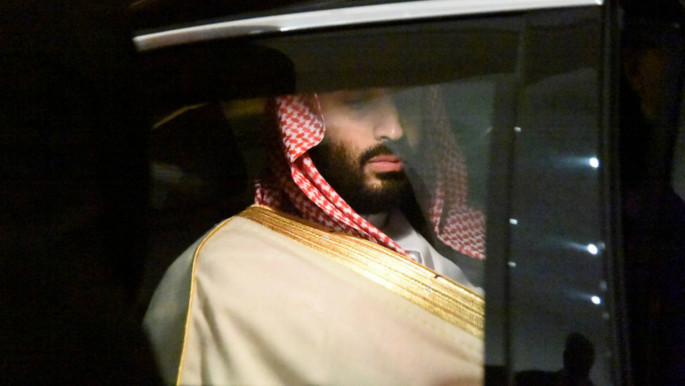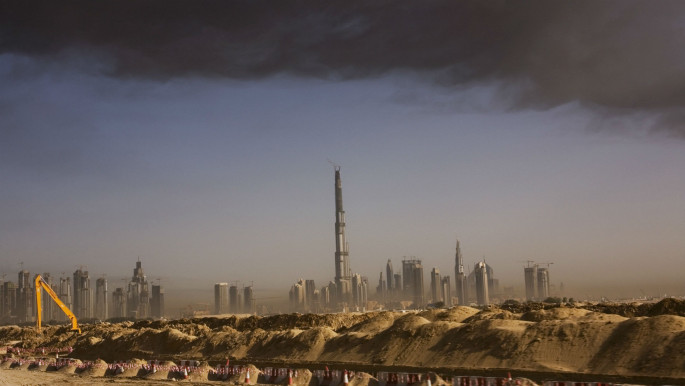'Saudi Aramco will remain a dominant oil player,' say leaders at Davos
The globe's top government and business leaders flock to the World Economic Forum in Davos, Switzerland, every year to discuss the most pressing political and economic challenges of our times and try to chart a path forward.
In addition to being a knowledge-generating and networking event, the forum is a huge public relations opportunity – a chance to put your best face forward in front of thousands of other elites and international journalists.
Saudi Arabia had more reason than in many years to put its best face forward at the 2020 forum from January 21-26. It was basking in the glow of 2019's public offering of shares in Saudi Aramco, the world's biggest oil company, and its scheduled hosting of the Group of 20 summit this fall.
Saudi Aramco's CEO, Amin Nasser, and chairman, Yasir Al Rumayyan, made some intriguing statements about the energy industry and their company at the forum.
Here are highlights – and analysis – of what they said:
Asked whether some Saudi officials' $2 trillion valuation of Saudi Aramco was justified, Rumayyan said: "We do not comment on our share price and value of the company. That is for the market to decide."
Crown Prince Mohammed bin Salman [MbS] came up with the $2 trillion figure in 2016 when the country announced there would be an IPO After the stock started trading, the valuation did reach $2 trillion. But share prices have dropped, so the valuation is now below $2 trillion.
 |
|
| Read also: The challenges and implications for Saudi Aramco's IPO |
Rumayyan also said: The IPO was over-subscribed – that is, there were more buyers than needed – in both the elite-investor and ordinary-buyer categories.
"This reflects confidence in the company and is a testimony to the strong investment case and attractive prospects for long-term shareholder value creation that we laid out at the time of the IPO."
He was right that the IPO was over-subscribed in both investor categories. But many international investors either could not take part in the offering, or decided to forgo it. One reason is that Saudi Arabia limited the initial sale of shares to Saudi nationals and organisations and "qualified foreign investors." Another was that shares were listed only on the Saudi Arabian stock exchange, whose rules fall short of the protections offered by exchanges in New York, London and Hong Kong.
Naseer said: Saudi Aramco will remain a dominant oil player, even if global production decreases, because it has a competitive edge.
Saudi Aramco does have a competitive edge over its rivals, thanks to lower production costs. The question is how much edge, because some experts question the company's production cost figure of below $10 a barrel.
Forbes contended Saudi Aramco's break-even price was $40 a barrel in 2018 – a year when Brent crude was fetching $71. In addition, given Saudi Aramco's indispensable role in Saudi Arabia's economy, social spending probably ought to be added to the cost of producing Saudi oil.
Another Nasser statement was: Scientific experts have found that the kingdom's crude is the cleanest of any of the top oil-producing companies.
It was unclear whether he was referring to oil with low sulfur content or other impurities. Saudi oil is mainly sour crude that has a lot of sulfur compared with crude from some places in the world. In addition, it's hard to compare Saudi crude with that of oil that multinationals like BP, Exxon and Chevron extract across the globe, because some of these companies' crude has high sulfur content but some does not.
Nasser also said: Saudi Aramco will be in even better shape in the future than now because a growing global middle class means there will be additional demand for oil.
 |
|
| Read also: Greta Thunberg's message for the Middle East at Davos |
This statement appeared to refer to Saudi Aramco maintaining its market share in a world with abundant oil.
Although the company boasts the planet's largest conventional oil reserves, it has scrambled to maintain market share because of surges in production from non-OPEC countries such as Russia, the United States and Brazil. In fact, loss of its traditional dominance has led to Saudi Arabia aligning with Russia in the OPEC+ arrangement.
Over the long term, Saudi Aramco could certainly improve its market picture, but its short-term and mid-term outlook may be less rosy.
Another thing to think about: Nasser is right that demand for oil will continue growing, but the most important question for producers' future prosperity is how much it grows.
Saudi Aramco leaders' statements at Davos certainly contained broad truths about the company's and energy sector's futures. But as the old saying goes, "The devil is in the details." Some statements were vague. It would have been nice to hear more specifics.
Now that Saudi Aramco is a publicly traded company, it needs to take its transparency and accountability games to new levels. From now on, the statements the company – and Saudi Arabia's leaders – make about oil are likely to be subject to more scrutiny.
Rauf Mammadov is resident scholar on energy policy at The Middle East Institute and senior adviser at the Gulf State Analytics. He focuses on issues of energy security, global energy industry trends, as well as energy relations between the Middle East, Central Asia and South Caucasus.
Follow him on Twitter: @RaufNMammadov




 Follow the Middle East's top stories in English at The New Arab on Google News
Follow the Middle East's top stories in English at The New Arab on Google News


